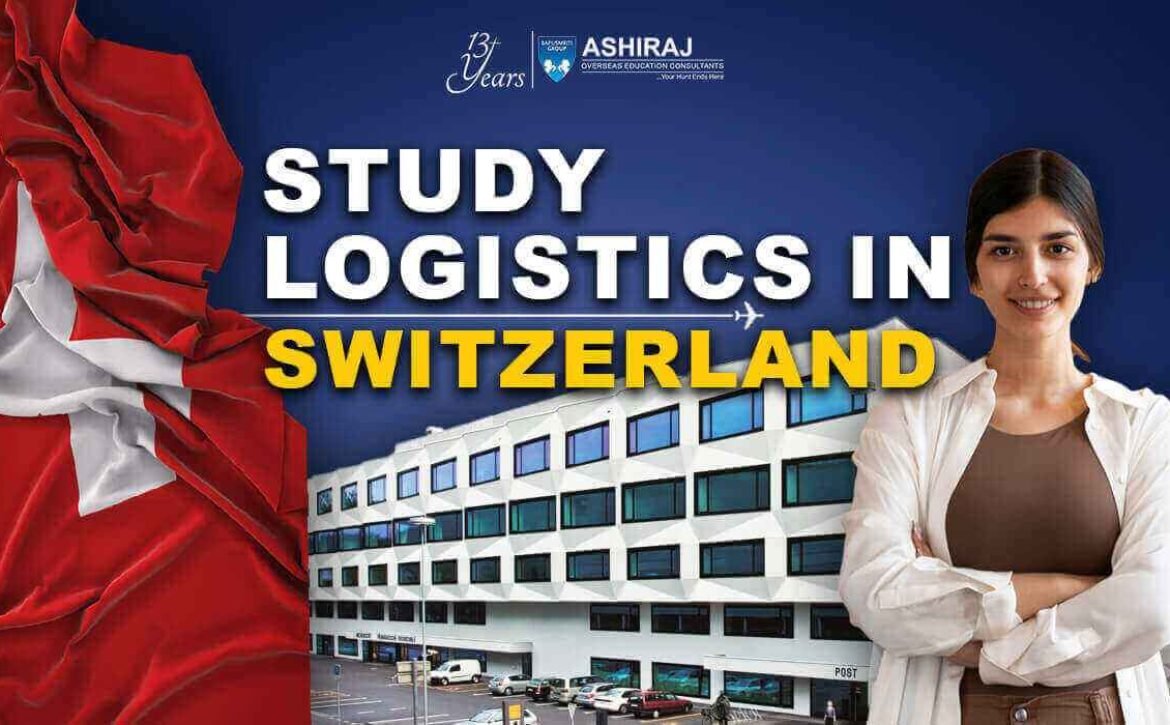
Logistics in Switzerland
Welcome to the efficient and meticulously organized world of Logistics in Switzerland, where precision meets reliability in every aspect of supply chain management. Nestled in the heart of Europe, Switzerland has earned its reputation as a logistical powerhouse, seamlessly connecting global markets with its unparalleled infrastructure and strategic geographic location. From the bustling urban centers to the serene Alpine landscapes, the Swiss commitment to precision is reflected in the flawless execution of logistics operations.
Logistics in Switzerland, a finely tuned orchestration of transportation, warehousing, and distribution, is a testament to the nation’s dedication to excellence. The Swiss Alps, often associated with breathtaking beauty, also serve as a logistical advantage, with innovative solutions overcoming the challenges of rugged terrain. In this Alpine haven, where time is of the essence, Logistics in Switzerland emerges as a beacon of efficiency, offering a harmonious blend of technological prowess and a commitment to punctuality. Welcome to a country where logistics isn’t just a process—it’s an art form.
Why to Study Logistics in Switzerland?
Switzerland, renowned for its precision and commitment to quality, stands as an exceptional destination for those aspiring to delve into the intricacies of logistics. Here are compelling reasons why studying Logistics in Switzerland is an unparalleled experience:
- Global Hub of Innovation: Switzerland is at the forefront of technological advancements in logistics. Studying here ensures exposure to cutting-edge solutions and methodologies that shape the industry worldwide.
- Strategic Location: Nestled in the heart of Europe, Switzerland serves as a logistical gateway to the continent. This strategic position offers students a unique vantage point to understand international trade dynamics.
- Industry Integration: Swiss universities have strong ties with the logistics industry. Students benefit from internships, industry collaborations, and guest lectures, providing real-world insights and networking opportunities.
- Alpine Challenges, Innovative Solutions: The Swiss Alps present logistical challenges that are transformed into opportunities. Studying logistics here means mastering the art of overcoming geographical obstacles through innovation and efficiency.
- Quality Education: Swiss educational institutions are globally recognized for their high standards. Logistics programs emphasize a holistic approach, blending theoretical knowledge with practical skills, preparing students for dynamic roles in the field.
Embark on a journey of academic excellence and industry immersion by choosing to study Logistics in Switzerland. Unveil the secrets of logistical mastery in a country where precision is not just a virtue but a way of life.
Top Universities to Study Logistics in Switzerland
University | QS World University Ranking 2023 | Type of University | Average Annual Fees | Programs Offered |
ETH Zurich | 8th | Technical University | $1,500 – $2,500 | Logistics and Supply Chain Management, Industrial Engineering |
University of Zurich | 69th | Comprehensive University | $1,000 – $2,000 | International Logistics, Transportation Management |
EPFL Lausanne | 18th | Technical University | $2,000 – $3,000 | Master in Logistics, Operations and Supply Chain Management |
University of Geneva | 135th | Comprehensive University | $800 – $1,500 | Global Logistics and Supply Chain Management |
University of St. Gallen | 148th | Business University | $1,200 – $2,000 | Executive Master in Logistics and Supply Chain Management |
Embark on a world-class education journey in Logistics in Switzerland with these top universities, each offering unique strengths. ETH Zurich, a technical powerhouse, ranks 8th globally and excels in Industrial Engineering programs. The University of Zurich, a comprehensive institution at 69th place, provides a broad spectrum of logistics programs at an affordable cost. EPFL Lausanne, standing 18th, specializes in logistics and supply chain management. The University of Geneva, at 135th, offers a focus on global logistics, while the University of St. Gallen, a business-oriented university at 148th, presents an executive master’s program for seasoned professionals. Navigate your academic path with precision in the heart of logistics excellence, Switzerland.
Course Curriculum for Logistics in Switzerland
- Strategic Supply Chain Management: Delve into the intricacies of planning, executing, and optimizing supply chain operations, aligning with Switzerland’s reputation for precision.
- International Trade and Customs: Explore the nuances of global trade regulations, customs procedures, and international logistics, crucial in a country positioned as a logistical gateway.
- Technology Integration in Logistics: Embrace the latest technological advancements shaping the logistics landscape in Switzerland, where innovation meets efficiency.
- Alpine Logistics Challenges: Address logistical challenges unique to Switzerland’s geography, developing problem-solving skills in overcoming Alpine obstacles.
- Sustainability and Green Logistics: Gain insights into Switzerland’s commitment to sustainability, with a focus on eco-friendly logistics practices and green supply chain management.
- Industry Immersion through Internships: Connect theory with practice through hands-on internships, leveraging Switzerland’s strong ties with the logistics industry.
- Cross-disciplinary Approach: Experience a holistic learning journey, blending business, engineering, and environmental aspects, aligning with the interdisciplinary nature of logistics in Switzerland.
Embark on a comprehensive educational voyage, navigating through the course curriculum tailored to meet the demands of Logistics in Switzerland. Immerse yourself in a program that combines global perspectives with Swiss precision, preparing you for a dynamic career in the heart of logistical excellence.
Eligibility Criteria & Admission Requirements for Logistics in Switzerland
- Language Proficiency (IELTS or TOEFL):
Demonstrating proficiency in English is essential. IELTS score of 6.5 or above or TOEFL score of 90 or higher is typically required to ensure effective communication in the diverse academic environment of Logistics in Switzerland.
- Standardized Test Scores (GRE or GMAT):
Many Swiss universities may require standardized test scores to assess academic readiness. A competitive GRE or GMAT score, often in the range of 310-320 or 650-700, respectively, strengthens your application for logistics programs.
- Passport & Student Visa:
Secure a valid passport and apply for a student visa. Ensure compliance with Swiss immigration regulations to embark on your educational journey smoothly.
- Academic Certificates:
Present evidence of your academic prowess with relevant certificates. A bachelor’s degree in a related field is usually a prerequisite, showcasing your foundational knowledge in logistics.
- Work Experience: While not mandatory, having work experience in the logistics or related industry can enhance your application. It demonstrates practical insights and a commitment to the field.
Eligibility Criteria Overview Table
Requirement | Criteria |
Language Proficiency | IELTS: 6.5 or above, TOEFL: 90 or higher |
Standardized Test Scores | GRE: 310-320, GMAT: 650-700 (as required) |
Passport & Student Visa | Valid passport, Student Visa application |
Academic Certificates | Bachelor’s degree in a related field |
Work Experience | Recommended but not mandatory |
Embark on your educational journey in the world of Logistics in Switzerland by ensuring you meet these eligibility criteria, aligning your skills and aspirations with the high standards of Swiss education.
Documents Required for Studying Logistics in Switzerland
- Passport: A valid passport is the key to unlock educational opportunities in Switzerland. Ensure it has sufficient validity to cover your entire study duration.
- Letters of Recommendation (LOR): Provide two well-crafted LORs from academic or professional references, showcasing your competence and potential in the field of logistics.
- Statement of Purpose (SOP): Craft a compelling SOP detailing your aspirations, academic background, and reasons for choosing logistics in Switzerland. Demonstrate a genuine passion for the field.
- Curriculum Vitae (CV): Prepare a comprehensive CV highlighting your academic achievements, work experience, and any relevant skills or certifications in logistics.
- Official High School Transcripts: Submit your official high school transcripts, providing a clear academic record that demonstrates your readiness for advanced studies in logistics.
- Educational Certificates: Include copies of your educational certificates, such as a bachelor’s degree, to substantiate your academic qualifications.
- Work Experience Certificate: If applicable, submit a work experience certificate to showcase any relevant industry experience in logistics.
- Proof of Financial Resources: Demonstrate your ability to cover tuition and living expenses by providing proof of financial resources, such as bank statements or sponsorship letters.
Prepare a meticulous application package with these documents to ensure a smooth admission process into the dynamic world of Logistics in Switzerland. Your comprehensive submission reflects your commitment to excellence in this field.
Admission Process for Logistics in Switzerland
- Research and Choose Programs: Begin by exploring logistics programs offered by renowned Swiss universities. Identify courses aligning with your career goals within the dynamic field of Logistics in Switzerland.
- Check Eligibility Criteria: Review and ensure you meet the eligibility criteria, including language proficiency (IELTS/TOEFL), standardized test scores (GRE/GMAT), academic qualifications, and any work experience requirements.
- Prepare Essential Documents: Assemble a comprehensive set of documents, including a valid passport, LORs, SOP, CV, official transcripts, educational certificates, work experience certificate (if applicable), and proof of financial resources.
- Submit Online Application: Most Swiss universities have online application portals. Complete the application form, attaching the required documents. Pay attention to deadlines and guidelines provided by each institution.
- Language Proficiency Test: If required, take the IELTS or TOEFL test and submit the scores as part of your application. This ensures your ability to thrive in an English-language academic environment, a crucial aspect of studying Logistics in Switzerland.
- Wait for Admission Decision: Patiently await the admission decision. Universities typically communicate outcomes via email or the online application portal. Check regularly and be prepared to respond promptly.
- Obtain Student Visa: Upon acceptance, initiate the student visa application process. Provide necessary documentation and adhere to Swiss immigration regulations to secure your entry into the Logistics in Switzerland academic journey.
Navigate the admissions process systematically to join the ranks of students pursuing excellence in Logistics in Switzerland. Each step is a crucial milestone towards a promising educational experience in the heart of logistical innovation.
“Education is the most powerful weapon which you can use to change the world.”
Nelson Mandela
Cost of Logistics Course in Switzerland
- Tuition Fees: Swiss universities often have moderate to high tuition fees. The cost varies based on the program and institution, ranging from $1,000 to $4,000 per semester for logistics programs.
- Living Expenses: Switzerland’s living costs are relatively high. Estimate expenses for accommodation, food, transportation, and personal needs, typically averaging between $1,200 to $2,000 per month.
- Health Insurance: Health insurance is mandatory for students in Switzerland. Budget approximately $80 to $120 per month to ensure comprehensive coverage.
- Books and Materials: Allocate funds for academic materials, including books and supplies. This can amount to around $500 to $800 per academic year.
- Language Courses (if required): If your program is in a language other than English, consider additional costs for language courses. Prices vary but can range from $500 to $2,000.
- Student Visa and Residence Permit: Factor in expenses related to the student visa application and residence permit, typically ranging from $60 to $150, depending on your nationality.
- Miscellaneous Costs: Include a buffer for miscellaneous expenses, such as cultural activities, travel, and unforeseen circumstances. Allocate around $1,000 to $1,500 per year.
Understanding and budgeting for these costs is crucial for a smooth experience while pursuing Logistics in Switzerland. Plan diligently to ensure financial readiness for an enriching academic journey in this logistical hub.
Scholarships for Logistics Courses in Switzerland
Scholarship Name | Eligibility Criteria | Amount | Application Deadline |
Swiss Government Excellence Scholarship | International students pursuing a Master’s or Ph.D. in logistics in Switzerland. | Full tuition fees, monthly stipend, health insurance. | Varies (typically around September-December) |
ETH Zurich Excellence Masters Scholarship | Outstanding academic performance in a relevant bachelor’s degree. | CHF 6,000 per semester | December 15 (annual) |
University of Geneva Excellence Master Fellowships | Exceptional students admitted to a Master’s program in logistics. | CHF 10,000 to CHF 15,000 | January 15 (annual) |
EPFL Excellence Fellowships | Master’s students with a strong academic record in logistics. | CHF 16,000 per academic year | January 15 (annual) |
HSG Doctoral Scholarships | Ph.D. candidates specializing in logistics with high research potential. | Full tuition fees, stipend, research support. | Varies (typically February 1) |
Explore various scholarships to fund your education in Logistics in Switzerland. The Swiss Government Excellence Scholarship caters to international students, while universities like ETH Zurich and the University of Geneva offer excellence scholarships. EPFL provides fellowships for master’s students, and HSG supports doctoral candidates. Deadlines vary, so plan ahead and submit your applications promptly for a chance to offset the costs of your academic journey in this logistical hub.
Career Opportunities After Logistics in Switzerland
Job Profile | Description | Average Salary (CHF) |
Logistics Manager | Oversee and optimize supply chain operations for efficiency. | 120,000 – 150,000 |
Supply Chain Analyst | Analyze logistics data, trends, and performance for optimization. | 80,000 – 100,000 |
Transportation Manager | Manage the transportation of goods, ensuring timely delivery. | 100,000 – 130,000 |
Warehouse Operations Manager | Supervise warehouse processes, inventory, and staff. | 110,000 – 140,000 |
International Trade Specialist | Navigate global trade regulations, ensuring compliance. | 90,000 – 120,000 |
Embark on a fulfilling career after studying Logistics in Switzerland, a hub of logistical excellence. Logistics managers play a pivotal role in optimizing supply chains, commanding an average salary of 120,000 to 150,000 CHF. Supply chain analysts delve into data for optimization, earning around 80,000 to 100,000 CHF. Transportation managers oversee timely delivery, earning 100,000 to 130,000 CHF. Warehouse operations managers, responsible for inventory and staff, earn 110,000 to 140,000 CHF. International trade specialists navigating global regulations earn 90,000 to 120,000 CHF. These lucrative opportunities reflect the dynamic landscape awaiting graduates in Logistics in Switzerland. Explore diverse roles, each contributing to the seamless flow of goods and services in this logistical hub, while enjoying competitive salaries.
Frequently Asked Questions About Logistics in Switzerland
Switzerland’s strategic location in Europe, robust infrastructure, and commitment to precision make it an ideal hub for logistics, connecting global markets efficiently.
Yes, many Swiss universities offer logistics programs in English to accommodate international students. It ensures a diverse and inclusive learning environment.
Eligibility typically includes language proficiency (IELTS/TOEFL), standardized test scores (GRE/GMAT), academic qualifications, and, in some cases, work experience.
Yes, various scholarships, including the Swiss Government Excellence Scholarship and university-specific awards, are available to support logistics students financially.
Tuition fees range from $1,000 to $4,000 per semester. Living expenses, health insurance, and other costs can add up to approximately $1,200 to $2,000 per month.
Graduates can pursue roles such as Logistics Manager, Supply Chain Analyst, Transportation Manager, Warehouse Operations Manager, and International Trade Specialist, with competitive salaries.
The duration varies. Bachelor’s programs typically take 3-4 years, while master’s programs range from 1 to 2 years. Ph.D. programs may take longer.
While not mandatory, having relevant work experience can strengthen your application, demonstrating practical insights into the logistics field.
Yes, international students are allowed to work part-time during their studies, usually up to 15-20 hours per week.
Once accepted into a program, initiate the student visa application process, providing necessary documents and adhering to Swiss immigration regulations.




